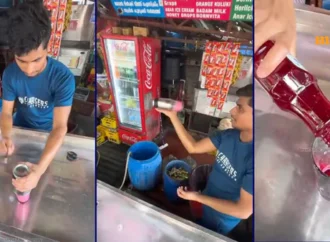Report
The Karnataka Department of Food Safety and Public Health has uncovered bacterial contamination and non-dairy additives in unbranded paneer sold in Bengaluru. This comes after a large-scale inspection initiated in March, prompted by rising concerns over food adulteration and contamination.
Inspection Details
In response to complaints of adulteration, Food Safety Commissioner Srinivas K led a statewide inspection of paneer products, focusing on harmful additives, bacterial contamination, and violations of food safety standards. By March 17, 163 paneer samples were collected, with 17 from Bengaluru. Preliminary tests revealed two unsafe samples in Bengaluru, while the remaining tests are still ongoing. Authorities expect more detailed findings in the coming weeks.
Comprehensive Quality Checks
The inspections involve a multi-tiered approach, including:
- Microbial Analysis: Testing for harmful bacteria like Salmonella and Listeria.
- Chemical Testing: Detecting non-dairy additives such as starch and vegetable oils.
- Supply Chain Verification: Investigating sources of unbranded, lower-cost paneer.
The department has found that cheaper, unbranded paneer—often sourced from Tamil Nadu—poses a higher risk of contamination, with prices as low as Rs 150 per kg compared to branded products like Nandini, which costs Rs 400 per kg.
Industry Concerns
Experts warn that the quality of unbranded paneer is often compromised due to substandard milk. “Unbranded paneer presents a higher risk of contamination,” said Subramanya Holla S, president of the Bangalore Hotels Association. Food safety officials are also urging consumers to avoid unverified products and opt for trusted brands. In addition to paneer, food safety teams also inspected ice cream and beverage manufacturing units in Bengaluru on March 26-27, issuing fines totaling Rs 62,000 for unhygienic practices. The department is pushing for stricter enforcement of hygiene standards across the food industry.
How Paneer is Adulterated
Paneer adulteration typically involves the use of cheap, non-dairy substances to reduce production costs:
- Vegetable Oils: Palm or soybean oils are added to increase fat content, impacting taste and nutrition.
- Starch or Flour: These thicken the mixture but reduce digestibility.
- Low-Quality Milk: Skimmed milk powder or low-quality milk solids have lower protein content.
- Harmful Chemicals: Synthetic substances like detergents or urea may be added to whiten the product or enhance yield, posing serious health risks.
Unhygienic processing conditions can also lead to bacterial contamination, further endangering public health.
Conclusion
With ongoing inspections and heightened vigilance, the Karnataka Food Safety Department is taking firm steps to tackle food adulteration, especially in the paneer market. Consumers are advised to stay cautious and opt for trusted, branded products to ensure their health and safety.
Source: The Indian Express
 Food Manifest
Food Manifest 















